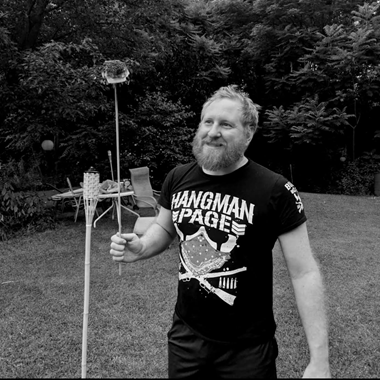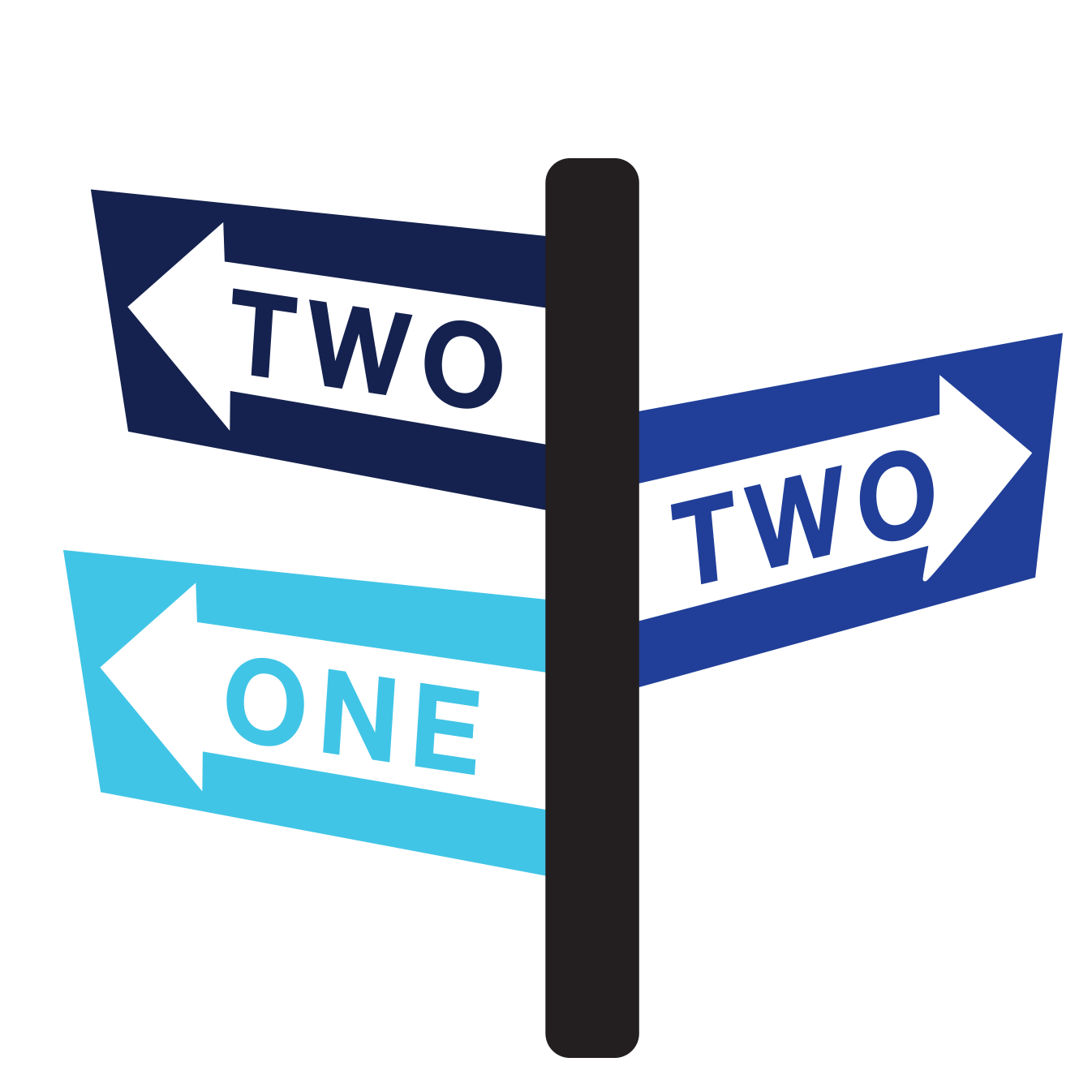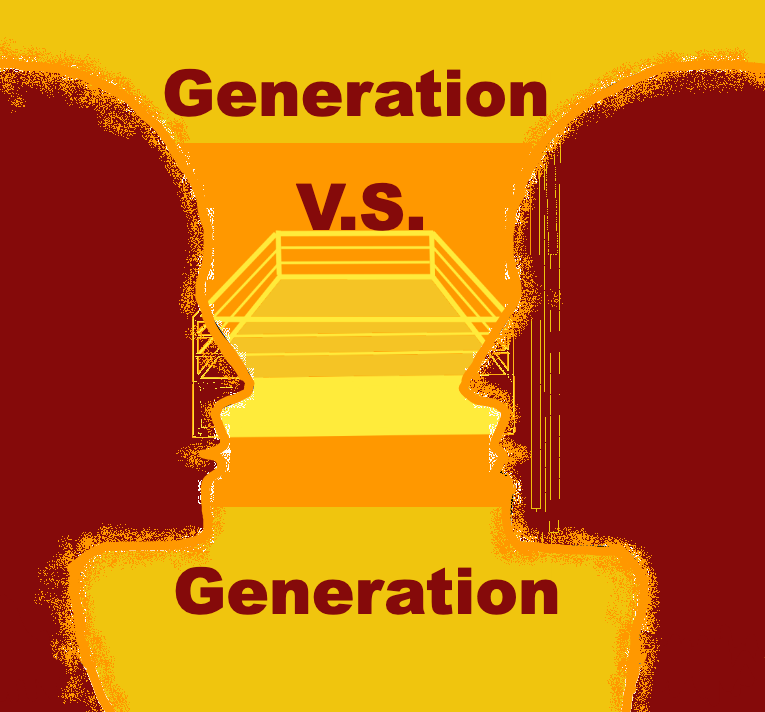Brandon, my future brother-in-law, grabbed my bicep momentarily. It was a reflex to ensure that this moment was a reality. We sat next to each other near the end zone of the Super Dome in New Orleans, Louisiana. This was Wrestlemania XXX in 2014 and the referee counted The Undertaker’s shoulder to the mat for three consecutive seconds. Prior to this, The Undertaker had escaped each year with a win for twenty-one straight years. The Super Dome, which for the evening had been spinning from seventy-five thousand voices, was for a few minutes, at complete rest. Audience members stared at each other in disbelief. Many of the attendees were adult men in their twenties and thirties. We were all coming to terms with our childhoods being officially over. In retrospect, the entire weekend would indeed be the last remnants of my childhood. The weekend that Wrestlemania turned 30.
The weekend began Saturday morning when I picked up Brandon from Louis Armstrong airport. I had driven down from Hattiesburg, MS where I was finishing up coursework for my PhD. I was also on the job market, using all free time to apply to various professor positions around the country. Brandon flew down from Brooklyn. He took Monday off from Tribeca Film to attend his second straight Wrestlemania. This was my first. “I made sure to play the theme from True Detective as the plane was descending,” he quipped, looking at our surroundings. New Orleans in early April features perpetually threatening skies and damp earth.
I began watching professional wrestling in elementary school. My neighbor invited me over for a pay-per-view, and I became hooked. My neighborhood featured the occasional shooting or stabbing or domestic incident. Baptists lived next door to drug dealers, and the gothic Methodist church that dominated the block seemed to do little to mediate the violence. Professional wrestling, like gangster rap, allowed a fictional space to explore violence and blood feuds that existed in reality for young boys born into a prison city.
My mother made a point to inform me that professional wrestling was fake, that the show was driven by storylines and not by actual fights. But this was precisely what interested me. WWE provided a never-ending action movie, where minor skirmishes and insults would build into lengthy pay-per-view encounters. I tried to explain to my mother that even though the fights were predetermined, and both combatants worked to not injure each other, that wrestling produced the same injuries that professional football did, just in a more controlled environment. To someone watching from the outside, WWE just looks like two overly muscular men acting, feigning to hurt each other. But producing a quality wrestling match requires the ability to tell a story through physical action, with enough realistic strikes and slams to get the audience to suspend disbelief. Wrestlers often play over-the-top variations of themselves, with storylines mimicking their own lives, making the genre of professional wrestling closer to creative nonfiction than straight fiction.
This year’s Wrestlemania featured the storyline of wrestler Daniel Bryan realizing his dream of becoming heavyweight champion. Daniel Bryan is listed at 5’10” and 210 pounds. Given how professional athletes inflate their stats, this puts Daniel Bryan closer to the average fan than to the titans that typically populate WWE’s roster. For this reason, since entering the company, Daniel Bryan had been relegated to the lower portion of card. Throughout his tenure, however, Bryan connected with the fans in a way that few wrestlers have been able to. Crowds would chant his name even when he wasn’t wrestling. After several years of not being promoted to bigger matches, the crowd began to become openly hostile to management.
When Dave Batista, a gigantic, slow, out of shape veteran returned to the company, he was instantly given the main event slot at Wrestlemania. Batista was a longtime friend of Triple H, who married into management and was now poised to take over the company when CEO Vince McMahon eventually steps down. Batista also had been cast in the lucrative Guardians of the Galaxy franchise, and so the audience saw the machine eyeing a cross-promotional champion who could wear their golden belt at red carpet events. When this main event announcement was made, the already hostile crowd went into full-on revolt. Batista had been a fan favorite during the Bush administration, but the crowd had moved on. In professional wrestling, the crowd acts as a Greek chorus, reacting to the in-ring action for the audience at home. Management helps craft personas for wrestlers in hopes of getting a specific reaction from the live crowd. To cast Batista as a returning hero, video packages were played endlessly, and the announcers enthusiastically described how great he looked. No one bought it. Fans mocked his wardrobe, his cardio conditioning, and his name. Management responded by pairing him up against long-hated wrestlers, hoping for sympathy, but the crowd then cheered for the villains. Management was forced to pivot and then turned the fans into a character of a storyline. Triple H would tell the live crowd that they cheer for Daniel Bryan because they didn’t know any better. We were taught that every participant deserves a trophy, and that anyone can achieve his or her dream. This started a chain of events that led to a match between Bryan and Triple H, with a main event slot granted if Bryan was victorious.
This storyline had fans excited because it replicated the plight of the millennial. Bryan had worked hard but was not being rewarded for it. For many millennials, this seemed eerily like their own lives. We are a generation who went to college, grad school, and internships, only to be greeted with an underperforming economy that didn’t need us. As Brandon and I spent the weekend in the French Quarter, this storyline seemed to mirror our own optimism that things were getting better. Aside from Wrestlemania, there were young adults celebrating new jobs and engagements. While at Cat’s Meow for karaoke on Saturday night, spirits were high. People were happy to share good news of finally entering the workforce in their field. Our generation was finally starting to be in charge of things. Since all my free time that semester had been spent on job applications, working out, and finishing my book manuscript, shaving and haircuts became a low priority. With a bushy red beard, 5’10” height, and semi-toned physique, the denizens of the French Quarter often mistook me for Daniel Bryan. I felt like a celebrity for a weekend. While sipping overpriced gin and tonics, I thought back to watching Monday Night Raw after youth soccer games and how I was about to attend Wrestlemania XXX far away from the Finger Lakes.
The day of the event filled the streets near the Super Dome with excitement. Bars were so packed that the crowd spilled out into the sidewalks. When the event began, WWE crafted a strong thesis to the event: we are letting our young wrestlers take the spotlight now. Hulk Hogan, “Stone Cold” Steve Austin, and Dwayne “The Rock” Johnson all came out into the ring to reflect on years past, and beers in hand, toasted to retirement. The workers of the 80s and 90s were stepping aside.
The first match to a big pay-per-view is often known as a “hot opener,” referencing a fast-paced, high-impact match to get the fans excited for the rest of the card. The hot opener for Wrestlemania XXX was the anticipated Triple H vs. Daniel Bryan match. Part of what made the storyline so effective was Triple H’s work as the villain. Triple H was the physical manifestation of the ruthlessness and greed of the One Percent. His tailored Armani suits puffed out from a bodybuilder’s physique. His gravely voice strained from the weight of the many tongue-lashings he delivered to employees on a weekly basis. His wife, Stephanie McMahon (daughter of the owner) played the role of Lady Macbeth, emasculating her husband into behaving like a remorseless executive. In retaliation, Bryan “occupied” a Monday Night Raw broadcast with the help of his fans. While the “Occupy Wall Street” movement produced little in tangible results, fans witnessed “Occupy Raw” force a COO to personally concede demands to the American worker.
Triple H entered the arena wearing a gold skull mask, crown, and chain mail. He sat on a gold throne while flanked by three servants in gold bikinis. Game of Thrones-esque music rumbled out of the stadium speakers. In true professional wrestling fashion, this was not just a story of a hard worker trying to catch a break. This was no less than the slaying of a god-king.
Then came the moment that the French Quarter looked forward to all weekend. The hero arrived. Daniel Bryan entered to a guitar rendition of “Flights of the Valkyries.” The “Yes Chant” began. To signal solidarity with the wrestler, each fan takes their two pointer fingers, thrusts them into the air and chants “yes.” While this might look strange individually, collectively as a force of 75,000 people, it becomes a triumph of the human spirit. The fans refused to let Bryan be relegated to an afterthought, and now they placed him into a chance to knock out a COO of a global NYSE company. The fact that everyone in attendance was paying that company to witness it is part of the allure of professional wrestling. You pay to witness to the physical embodiment of your own life projected around a football stadium.
During the match, Triple H would attempt to use his superior strength to gain leverage, but Bryan used agility and resourcefulness to keep his boss off balance. Stephanie McMahon, clad in a business suit and stilettos, sulked ringside whenever the unkempt Bryan gained the upper hand. When her husband reined blows down upon Bryan, she would mock the fans in the front row by chanting, “yes” in their faces. The announcers used nouns like “proletariat” when describing Bryan.
After a thirty-minute match, Bryan struck his boss square in the jaw with a running knee. He knocked Triple H out and the crowd erupted in “yes” chants. Stephanie approached the ring, despondent, and slapped the holy hell out of the hero. Lady Macbeth was going to have the last laugh. Triple H then attacked Bryan from behind, adding drama to the main event, which Bryan advanced to.
The other main match on the card was The Undertaker, now approaching fifty years old, defending his undefeated streak. Since he had won for twenty-one straight years, there was little drama in his match. His opponent this year was Brock Lesnar, the former UFC heavyweight champion who signed with WWE for a few matches per year. Lesnar looks and behaves like a barbarian. Although 6’3” and 286 lbs, he moves around like an NFL defensive end. His tattoos of a black sword down his chest and a demon skull on his back make his musculature look designed to inflict pain, rather than perform manual labor. While Lesnar’s storylines typically lacked drama, his matches were fun in their pure violence. Signing up for a match with Lesnar meant absorbing stiff punches, elbows, and submission holds. Since Lesnar is mostly a part time attraction, there was little chance of him beating “The Streak.”
The crowd was much more subdued for this match. The Undertaker looked old and slow, and Lesnar was hitting punishing strikes, but the crowd figured that ‘Taker would somehow catch a lucky punch late in the match to give him the win. After a third F5, a move where Lesnar twirls his opponent to the mat, mimicking the movement of a tornado, The Undertaker lost. Brandon grabbed my arm. Silence. Part of our collective childhood was watching a dastardly villain fall to The Undertaker at Wrestlemania. The Undertaker had a different opponent every year, but the theme was always the same. Someone can only get away with so many sins before they face the judgment of Time. The Undertaker spent the following two days in a New Orleans hospital from this match. He suffered a concussion, along with an assortment of other injuries. It took him a calendar year to recover from Lesnar’s strikes. Even in the scripted world of professional wrestling, Father Time waits for no man. I snapped a picture of the jumbotron proclaiming “21-1” and captioned it with, “childhood over.”
Despite being injured after his win, Bryan came out to compete for the heavyweight title in a Triple Threat Match against Batista, and against Randy Orton, management’s handpicked champion. While the crowd wanted Bryan to win, the mood was a little less electric, partly because Batista and Orton were just faceless obstacles, rather than the capitalistic evil that Triple H and Stephanie embody.
Realizing that the crowd went dead whenever Orton or Batista got the upper hand, the two villains began working together against the hero, getting the crowd more involved. Triple H and Stephanie came down to try to ensure that he didn’t win. After having his body slammed through an announcer’s table, Daniel Bryan lay motionless for a large portion of the match. Doctors and trainers began to wheel him out on a stretcher toward backstage. Although clearly part of the show, the crowd became afraid that this was a way to showcase Bryan in the main event without allowing him to achieve his dream.
Then, a stirring. Bryan willed himself away from the training staff and marched to the ring. The crowd chanted, “yes” louder than ever. Despite all the obstacles, Bryan locked Batista into a submission hold and the crowd began chanting, “Tap!” This references the hand motion a fighter makes when he gives up. After a few more seconds, Batista tapped, and Bryan was declared the winner and new champion. Purple and gold confetti blanketed the Super Dome. Brandon handed me a piece of purple confetto that he caught. “Yes” chants spiraled up into the heavens.
That summer I continued to apply to jobs while apartment sitting on the Upper West Side. I had previously interviewed at Nassau College but was not awarded the position. I found it hard to concentrate on anything related to finishing my PhD. I felt that this was my big chance, and I came away with yet another loss. During my 20s, I was rejected from program after program while I scraped and clawed my way into publications. I spent a lot of time lying in an 88th St. stone courtyard, feeling the weight of failure pin my shoulders down, listening to the sounds of families enjoying vacation.
I started to become desperate and began applying to adjunct and temporary positions. The position of adjunct professor has received increasing attention as of late. While university administration and sports budgets continue to grow, academic budgets continue to shrink. To get the most out of these shrinking academic budgets, universities increasingly use part-time and temporary faculty to cover core classes. Adjunct professors lack proper offices, votes in faculty senates, and chances for promotion. This hiring practice came to the public’s attention after Margaret Mary Vojtko died penniless after adjuncting for twenty-five years at Duquesne University in Pittsburgh, PA. Now adjunct professors are beginning to unionize so that they are not left out of the economic recovery.
Finally, I was granted a phone interview in late July and accepted a permanent offer at Georgia College, near Atlanta. I had applied to forty-eight different academic jobs. I had worked at becoming a professor or the duration of my twenties, and my hard work had finally paid off. I took out my purple confetto from my wallet and gave it a quick smooch.
Daniel Bryan’s injuries and concussions soon caught up with him. He had to surrender his championship and undergo various surgeries. During the move from New York to Georgia, I lost that confetto. I noticed that it was missing during my first day in my new college town. I didn’t know anyone, had no place to live, and the unrelenting heat made it difficult for me to breathe. I felt pummeled by the move. I recreated the closing moments of Wrestlemania in my mind. I had tried to grab confetti on my own but kept missing. I needed someone else to help me out. I suddenly had the clarity to call my dad, who offered to pay for a hotel so that I could get some sleep. I also had friends in Atlanta who treated me to meals while I was settling in. This economy has taught this generation that we need each other to succeed. When Daniel announced his retirement from professional wrestling two years later, he reminded the audience that the world owes you nothing. That hopefully you find what you love and the people you love will support you. He recently came out of retirement to wrestle for rival promotion AEW and I saw him once again in Duluth, GA in front of a crowd one fifth the size of Wrestlemania XXX. Unlike the end of his WWE career, he seemed much happier and more rested. The labor market is now contending with a generation that seeks happiness and rest over sociopathic ambition. Millennial and Gen Z workers know there’s more than one definition of victory.



